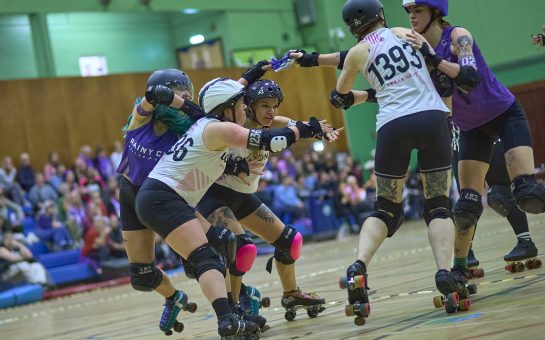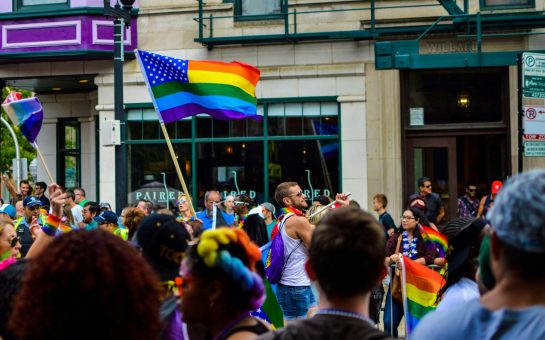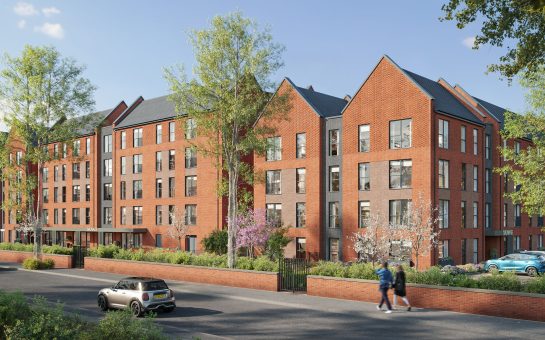Kate Richardson-Walsh, Olympic gold medallist and prominent LGBT campaigner, condemned Margaret Court’s “demonisation” of the transgender community.
Court is an outspoken critic of same-sex marriage – passed as law in Australia last year – and has recently labelled transgender people as “all the devil.”
Born in Withington and raised in Stockport, Kate is a prominent member of the LGBT community, married to Great Britain hockey team-mate Helen Richardson-Walsh since 2013.
She added her voice to those asking for Court’s name to be removed from the main arena at the Open in Melbourne, which started yesterday and runs until Jan. 28.
“Margaret was an incredible tennis player, one of the most successful ever to play on the tour,” she said, appearing at Manchester Grammar School as part of the national Tackle Meningitis campaign.
MGS pupils Finn Perls (left) and Henry Murray (right) meeting sporting legends @matt9dawson and @katewalsh11, who visited MGS today to talk about the importance of spotting the signs of meningitis, and answered questions about their elite careers @GSK #tacklemeningitis pic.twitter.com/hHeCSkEVv6
— Manchester Grammar (@MGSMagic) January 15, 2018
“I agree with Billie Jean King, who said recently her comments have gone over and above having a purely religious opinion.
“I think it has started to really affect people. In particular I don’t like the way she demonises the transgender community – that’s one of the hardest and most polarised communities.
“She’s setting them apart with her comments and they need our help right now.
“We want everyone to feel comfortable in their own skin. It’s surely the most important part of being a human being.”
Both Kate and Helen have campaigned on mental health issues, appearing at the Rainbow Laces Summit in Manchester last summer.
Having publicly shared her own experience of depression, Richardson-Walsh applauded the bravery of Everton player Aaron Lennon in returning to elite sport after a serious episode.
“Anybody campaigning around mental health just wants to make it open and honest,” she said.
“For so long it’s been stigmatised and seen as a weaknesses, but really so many of us have been touched by mental health issues in some way.
“Having been in that place myself, it’s hard and in those moments the last thing you want to go is get help.
“But that’s what we need people like Aaron to feel brave enough to do.”
Image courtesy of Liverpool John Moores University, with thanks.



